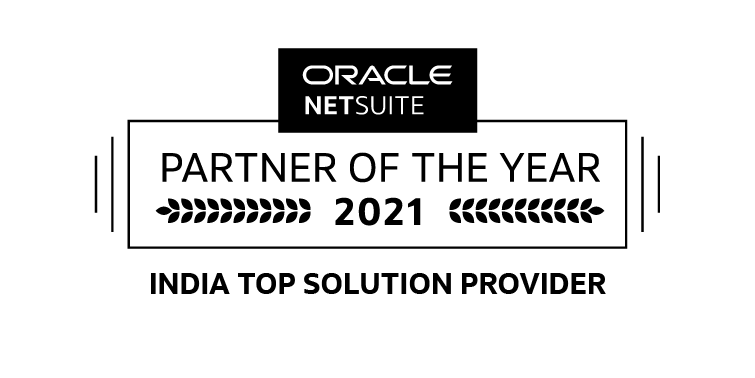Table of Contents
- 1 Why Do We Need NetSuite ERP Implementation?
- 2 Key Steps in NetSuite ERP Implementation
- 3 NetSuite Implementation Plan
- 4 Advancements NetSuite ERP Software Brings
- 5 FAQs
- 5.1 Q1. What is the implementation lifecycle of NetSuite?
- 5.2 Q2. What is the critical issue in ERP implementation?
- 5.3 Q3. What does NetSuite ERP cost?
- 5.4 Q4. What are the key components of an ERP implementation?
- 5.5 Q5. NetSuite vs. SAP: Which ERP is Right for Your Business
- 5.6 Q6. What are the NetSuite Implementation Mistakes To Avoid?
Why Do We Need NetSuite ERP Implementation?
Industries today demand constant innovation to meet dynamic needs of respective clients, which can be accomplished only through advance technology. Industries like retail or manufacturing grow as per industrial pace and have to keep up with upcoming advancements in the industry. Manufacturing industries have access to scheduling parameters that define the time taken in preparing a machine or system between several production stages. Run time helps in defining machine output and work in progress to forbid stock out situation. Business management software such as NetSuite ERP is the appropriate solution to help industries fulfill their customers’ needs in right manner.
Key Steps in NetSuite ERP Implementation
By leveraging extensive NetSuite Implementation services offered by an acclaimed, industry-expert, and experienced Oracle NetSuite implementation partner, thriving businesses can witness a set of steps with each segment. You can follow the steps to continue business operations smoothly and execute on the vision without a hitch.
Engage
This is the initial step of an effective NetSuite implementation strategy and it covers engaging with teams. This step involves forming ERP project teams with decisive project managers, engineers, and the management. This team can set kick-off calls are set, project budgets, decide on timelines, and execute on change management plans.
Drive
At this stage, business administrators can connect with their NetSuite partner to get consultation on creating actionable plans for the future deployment of the ERP solution. Particularly, this helps avail of a range of customizations and get extended development to meet specific and significant business requirements. Also, this step involves planning for provision cloud-based applications or NetSuite licenses, and developing a training plan.
Enable
At this stage, businesses should pay attention to the objectives of go-live events and the migration of critical data. This step involves action, where NetSuite implementation partners will put the plans developed in the Drive stage into action, which include training, installation, and solution testing.
Convert
This is the final step in a NetSuite ERP implementation. It can be called as flipping the switch. Businesses can come across final data migrations before the go-live date and gaining ownership of the systems.
NetSuite Implementation Plan
Connecting with an acclaimed NetSuite implementation partner can help businesses overcome one of the largest challenges during an ERP implementation— transitioning employees to the new business processes.
In general, they offer a concrete change management plan, clarity, and training for migrating employees to new systems, rules, and procedures. In short, this change management plan offers a detailed roadmap to the specific goals of the new processes with key elements.
Analysis
Business administrators can analyze or assess the new platform’s readiness to sopt opportunities and manage risks.
Role Assessment
It enables business leaders to check the current workforce and recognize personnel gaps.
Communication Plan
Business managers can create a detailed communication plan to assess objectives, set milestones, manage deliverables, and improve transition processes.
Workforce Enablement
It helps employees make the most of a transformed organization by implementing new roles and a robust training plan.
Training Execution
Companies can perform onboarding training for new systems and help the staff make the most of the newly installed applications.
Advancements NetSuite ERP Software Brings
NetSuite implementation for manufacturing industry or for other industries in general brings following business profits:
- It has multiple functionalities to track activities, transactions, lists, reports, documents, system customization and different sales tools.
- You get domestic and international accounting standards like such as income statement, balance sheet, cash flow statement along with other financial reports including VAT/GST, sales, budgeting, vendors, revenue, cost accounting and forecast.
- NetSuite Cloud ERP also has various key performance indicators for sales, new business, income, expenses, etc.
- Dashboard of the business management software comprises all orders, details for the work in progress, partially shipped products, QC and invoices.
- Scheduled orders covers information like my appointments, new service order, new vehicle, new customer, dispatch board and added parts.
- NetSuite ERP also has history of activities, task windows, today’s scheduling orders, my service order list.
inoday has solid confidence in addressing different and complex manufacturing challenges regarding inventory control issues, planning, warehouse, communication between customers and suppliers and much more. Avail our NetSuite implementation services offered by our adept NetSuite implementation consultants. Based on years of our expertise, we address your needs best with our strategic solutions across all complex environments.
FAQs
Q1. What is the implementation lifecycle of NetSuite?
Ans. The implementation lifecycle of NetSuite ERP covers multiple steps. It includes business gap analysis, planning, design, development, support, deployment, and training. Above all, the lifecycle depends widely on the size of the business and complexity of the key pain-point to be addressed.
Q2. What is the critical issue in ERP implementation?
Ans. Some of the most critical issues incurred with ERP implementation include resistance to change, maintenance costs, inability to understand features, data representation.
Q3. What does NetSuite ERP cost?
Ans. A NetSuite ERP cost widely depends on the tools you are taking, the size of your business, duration, and whether you are going for self-implementation or connecting with a partner.
Q4. What are the key components of an ERP implementation?
Ans. Key components of ERP Implementation includes financials, supply chain management, human resources management, customer relationship management, inventory management, business intelligence.
Q5. NetSuite vs. SAP: Which ERP is Right for Your Business
Ans. If you are puzzled with choosing either NetSuite or SAP for your business, you can connect with an acclaimed solution provider. They will help you understand the high-points of both the software.
However, NetSuite offers more custom fields, data-driven insights, and automated processes than SAP. On the other hand, SAP is mostly used for customer relationship management; is more direct. Unlike SAP, NetSuite can be used by both large and small and medium enterprises.
Q6. What are the NetSuite Implementation Mistakes To Avoid?
Ans. Businesses must consider some steps to avoid more challenges with NetSuite Implementation. First, one must avoid bad data cleanup before migration. One must avoid ignoring engagement strategy, avoid over customization, and do proper testing.
For more details around NetSuite ERP Implementation, write to us at info@inoday.com Or Schedule A Demo








